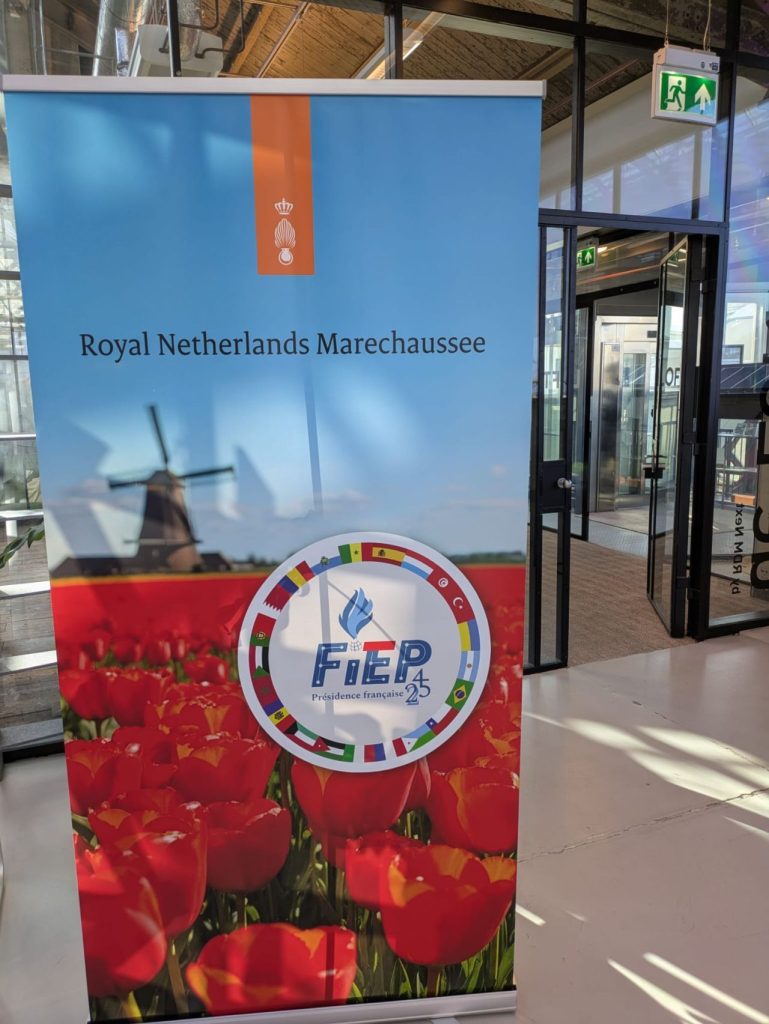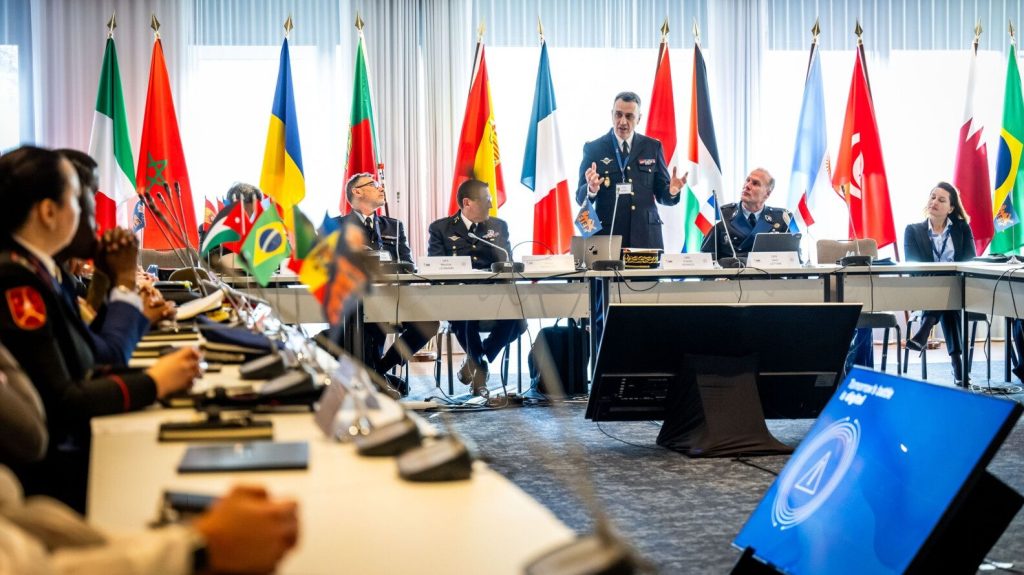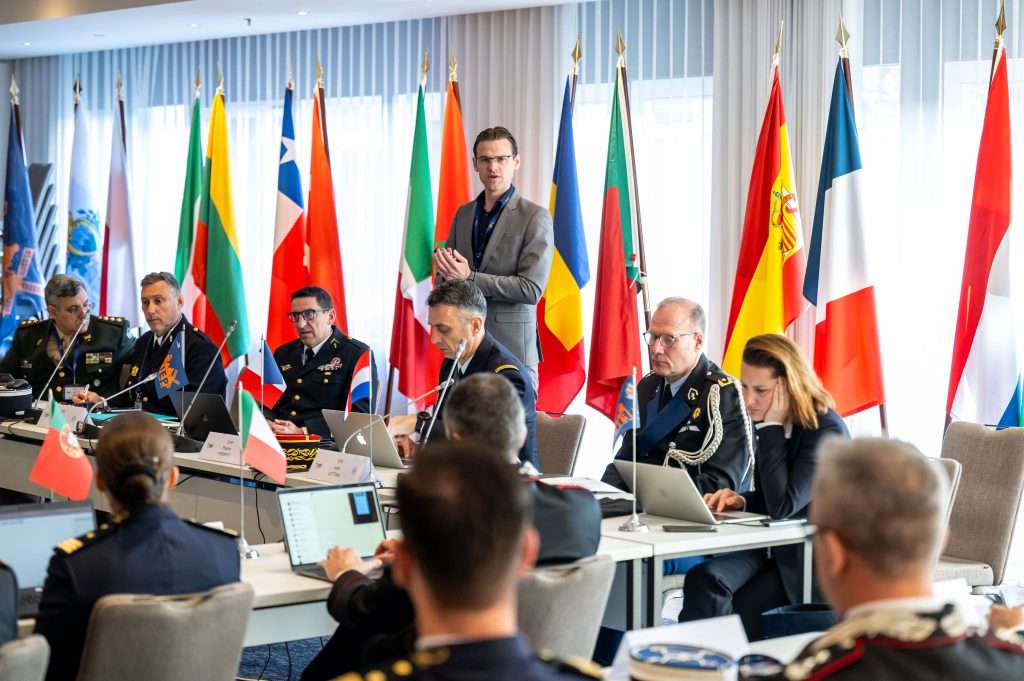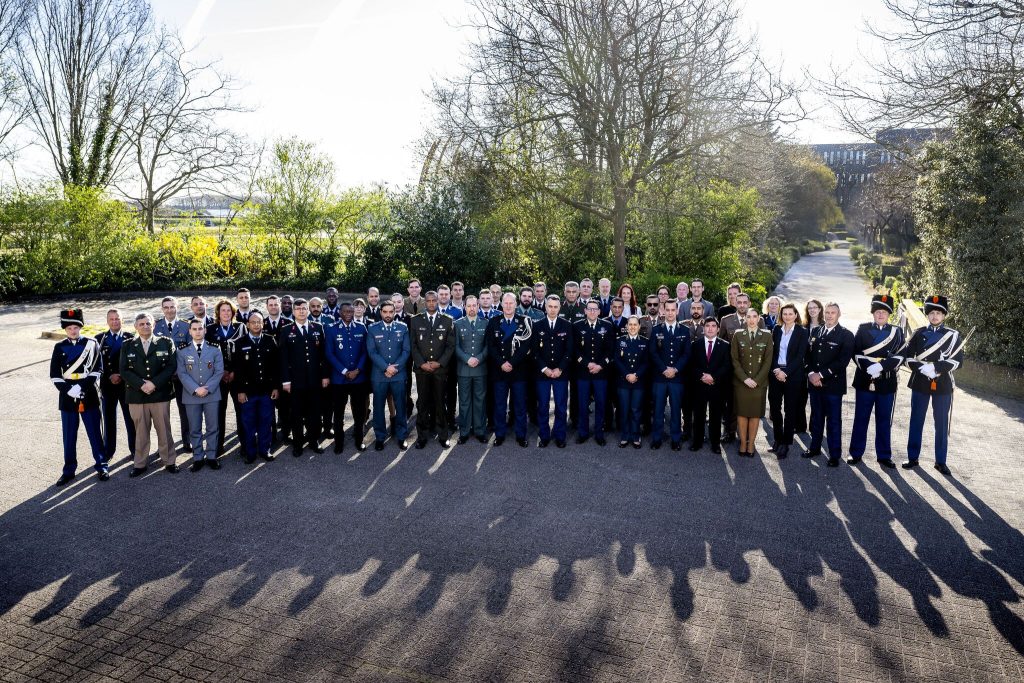On 23 October 2024, in Rome, the French national gendarmerie took over the presidency of FIEP, the association of world gendarmeries, thus succeeding, for a period of one year, to the Italian Carabinieri. To start this new year and this new cycle of reflection, France has chosen as its theme “the impact and challenges of artificial intelligence for gendarmerie-type forces”. In order to nourish the exchanges and advance the debates around this reflection, four commissions are planned throughout the year. They cover the topics of human resources, international affairs, new technologies and service organization.
Thus, in December 2024, the first commission was held in Chile on the theme of the impact and challenges of EI in terms of human resources. Four months later, from 7 to 10 April 2025, FIEP members met in the Netherlands to attend the second commission on artificial intelligence in the processing and management of international affairs. The French gendarmerie, which holds the presidency, was represented by a delegation composed of experts, including General Patrick Perrot, coordinator of experts, in charge of I.A. issues in gendarmerie, and Mrs Ysens De France, expert I.A in the transformation department of the General Directorate of the National Gendarmerie, as well as the two national contact points, Lieutenant-Colonel Olivier Monceret, of the Command of the Gendarmerie for external missions (CGMex), in charge of FIEP, and his assistant, Warrant Officer Maurice Lehmann.
Under the guidance of the Presidency, experts provided an overview of national regulations and their impact on A.I. projects currently being developed in each country. During the discussions, the various participants stressed the need to combine current and future regulations with a shared ethical vision adapted to the values of gendarmerie-style forces. Since the regulation of A.I. is a key issue for its operational deployment to the benefit of the gendarmerie forces, its appropriation raises certain challenges, which were also discussed during the commission. These include the evolution of existing national legal frameworks, the need to build a framework of trust through the production of an ethical code and a clear strategic vision, and finally, the ability to anticipate the requirements of the A.I. law in terms of compliance, training and organization.
At the first commission in Chile, the French presidency launched the initiative of a code of ethics for gendarmerie-type forces. The Committee on International Affairs has begun work on it. This initiative provided an opportunity to exchange views on key ethical principles and their applications in the areas of citizen protection and security.
Following a presentation by General Patrick Perrot on the main ethical challenges in internal security, four working groups explored ethical concepts based on practical experiences or case studies. This first phase of collaborative work will continue until the next commission, which will take place in Paris from 26 to 29 May 2025. On this occasion, a first draft of the ethical code will be presented to obtain the approval of the various members and experts of the FIEP association.





